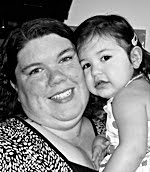Tuesday, March 23, 2010
march preview, part ii.
Here are some thought-provoking questions to get the conversation started. Stay-tuned for our recorded chat!
1. Don says, "Somehow we realize that great stories are told in conflict, but we are unwilling to embrace the potential greatness of the story we are actually in. We think God is unjust, rather than a master storyteller" (31-32). Has this book changed your perspective when looking at conflict in your life or the lives of others? How can we embrace & engage conflict?
2. "A story is a character who wants something and overcomes conflict to get it" (48). When I heard Don speak, he emphasized the point that we should want more and it should be clearly defined. (See also Chapter 21.) What do you want? What conflicts have you had to overcome/ are you overcoming?
3. The story of the family in chapter 9 was so powerful to me. Have you ever found yourself in the midst of a story that you didn't want to be in? How did you find your way back to the role you were intended to play? Can you think of people in your life that need to be living better stories? How can we help to provide better roles for these individuals?
4. "The point of life is the same as the point of a story, the point of life is character transformation" (68). Don also says that if the character doesn't change, the story hasn't happened. Has story been taking place in your life? How have you changed? Are you in the middle of some transformation right now?
5. In chapter 22, Don writes about his hiking trip in Peru. It is said that "the more painful the journey to Machu Picchu, the more the traveler would appreciated the city, once he got there" (140). What do you think about this concept? Has pain made some of your stories more beautiful? Would you change anything? Why or why not?
6. "He said to me I was a tree in a story about a forest, and that it was arrogant of me to believe any differently. And he told me the story of the forest is better than the story of the tree" (198). How does this provide hope?
7. Chapter 34 is titled "To Speak Something into Nothing" and chapter 36 is "Where Once There Was Nothing". What can this look like in our stories? Do we take advantage of this gift that our Creator has given us to "speak something into nothingness" as He did?
8. Individually, how are you each living out a good story? Did Miller's book and thoughts change the story you were writing? Are there other ways you'd like to change to redirect your story?
9. A Million Miles -- along with Francis Chan's book Crazy Love -- got me thinking a lot about risk-taking (specifically, the family Don meets who bought a house on a lake to host diplomats and Don's last-minute cross-country bike trip). What does spiritual risk-taking look like? For those of us financially strapped, what's the difference between taking leaps of faith and being stupid?
10. Along the lines of the above question (and spurred in part by Kari's comments I mention below), how are those of us who live in less-than-Oscar-worthy scenarios still capable of writing a good story?
11. Before actually reading the book, I read Miller's blog post about surrounding our new year's resolutions with the elements of a story (for example, instead of "exercise more," sign-up for a 5k race with friends). His examples resemble a lot of the memoirs I've read lately, like 29 Gifts, The Happiness Project, Julie & Julia. These women all took rather mundane resolutions for themselves and turned them into pretty remarkable stories. My question is: What do you do when that part of your story is over? How do you continue writing a great story after it feels like the climax has passed?
12. This one was posted in a blog comment today by a blogger named Kari. I have to say, I agree with her thoughts, so I'd love for us to tackle her question: But I do have a complaint. Don is a writer and a lot of his professional life is under his control as far as what he pursues and his time and such. I, however, don't have the same luxury. It's easier for me to see how he is going to write a good story than how I am going to write a good story. I have experienced some profound professional disappointment in the past two weeks, and there's really nothing I can do about it. I am completely powerless to change the situation. What do you think the concept of "telling a good story" could do for me in this situation?
Posted by
Annie
at
3:06 PM
![]()
Labels: preparation
Subscribe to:
Post Comments (Atom)










0 comments:
Post a Comment